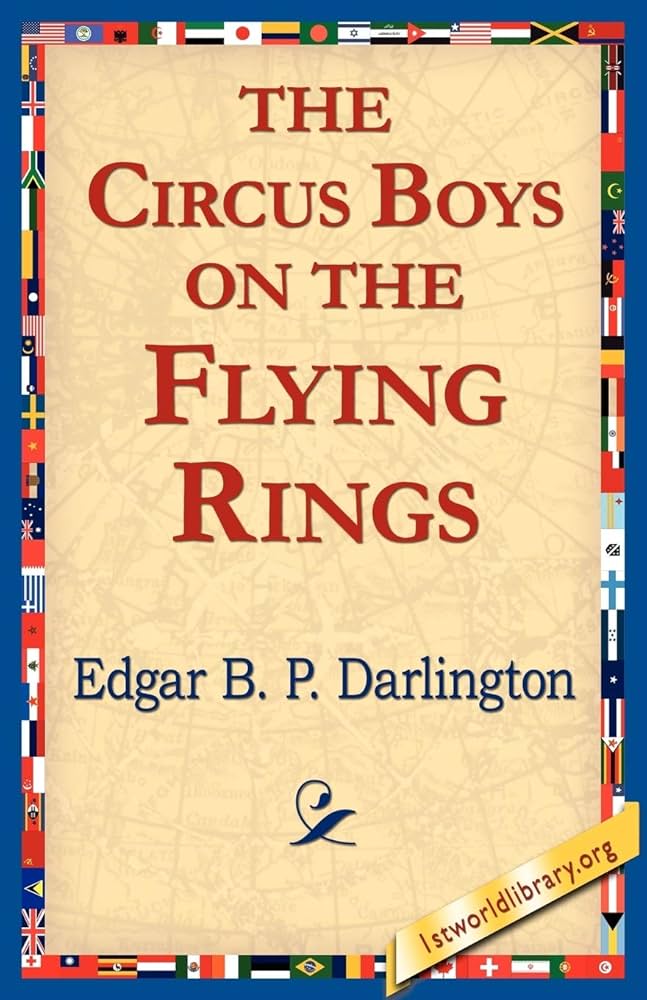Chapter XIII — The circus boys on the flying Rings
byChapter XIII opens with a harsh wake-up call—literally. Phil and Teddy, still adjusting to the unpredictable rhythm of circus life, are unceremoniously dumped out of their bedding by a tentman eager to begin his day. The abruptness rattles them, and the cold morning air adds insult to injury. Hoping to shake off the chill and their irritation, they set out for a brisk jog. But fate has another challenge in store as their path ends in a muddy plunge into a stream. Soaked and shivering, the boys realize quickly that circus life isn’t as glamorous as it might appear from the crowd’s view. Yet, even as discomfort creeps into their bones, neither of them considers quitting. Their resilience, though unspoken, begins to take shape—one forged not in spotlight but in small, freezing misfortunes that test their grit and determination.
The mood shifts when the boys stumble across the cook tent, where they’re welcomed by the aroma of breakfast and a warm cup of coffee. The cook, seeing their state, offers more than just food—he gives them the dignity of purpose. Grateful and motivated, they pitch in, wiping down dishes and hauling supplies without complaint. This moment, simple as it is, anchors their morning in a new kind of hope. Phil, ever alert for ways to grow, starts thinking about presentation and how to elevate his act with Emperor. His proposal to wear a costume, something small yet symbolic, shows foresight and ambition. Mr. Sparling, despite his usual strict demeanor, approves the idea—clearly recognizing that Phil isn’t just dreaming big, he’s also thinking smart. That nod of approval marks a turning point in Phil’s relationship with the circus.
Through tasks and interactions, the boys find themselves drawn deeper into the circus’s internal ecosystem. Teddy, though more comical and less serious, matches Phil’s energy in his own way, winning over others with humor and eagerness. Together, they aren’t just performing—they’re becoming part of the machinery that makes the spectacle work. Their dynamic mirrors a fundamental truth in entertainment: it’s not just talent that matters, but the willingness to serve the craft from every angle. Whether they’re sweating in the cook tent or riding in costume on an elephant, the boys invest fully. That investment is recognized not only by their peers but also by mentors like Mr. Sparling and Mr. Miaco. Every small success, each earned through effort, adds another stone to the foundation of their circus identity.
Phil’s sense of responsibility deepens with every new task, and that maturity begins to influence Teddy too. The experience of being entrusted with meaningful work reshapes their idea of success—not as applause alone, but as contribution, commitment, and credibility. They no longer feel like outsiders. Even in exhaustion, they’re energized by purpose. This newfound role gives them a deeper sense of belonging, which builds confidence and trust within the group. It also prepares them for the unexpected turns ahead. Because in circus life, as in life itself, stability isn’t promised—but the ability to adapt, endure, and improve always pays dividends.
Later that evening, after the crowd disperses and the lights dim, Phil reflects on how much one day has changed him. He’s not dazzled by the spotlight, but by the work behind it. That morning, they had been cold, uncertain, and invisible. Now they’re warm, welcomed, and slightly wiser. Small gains like these build momentum, creating a cycle where effort fuels opportunity. The day may have started with spilled bedding and a muddy plunge, but it ends with a sense of progress neither boy could have imagined. They’ve begun to earn not just roles in the performance but places in the hearts of their fellow performers.
The charm of the circus isn’t just in the sparkle of the show—it’s in how it turns ordinary boys into daring performers and thoughtful individuals. Through Chapter XIII, the story reminds us that growth often begins in discomfort. It teaches that resilience is formed not by avoiding hardship, but by facing it with open eyes and ready hands. Phil and Teddy’s transformation is slow, imperfect, but authentic—and that’s what makes it compelling. Their bond with the circus strengthens, not because they’re flawless, but because they show up, care, and try. In that, there’s real magic.

